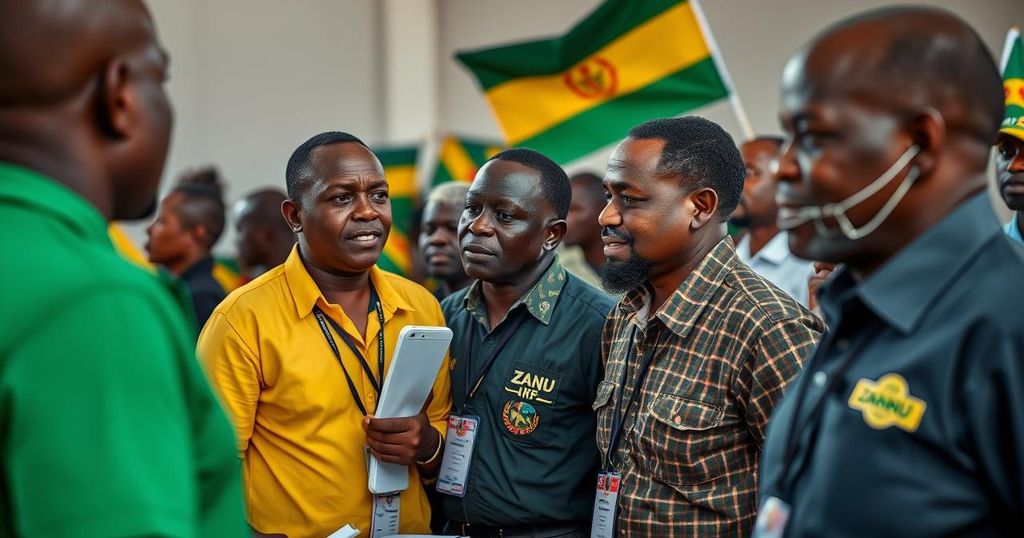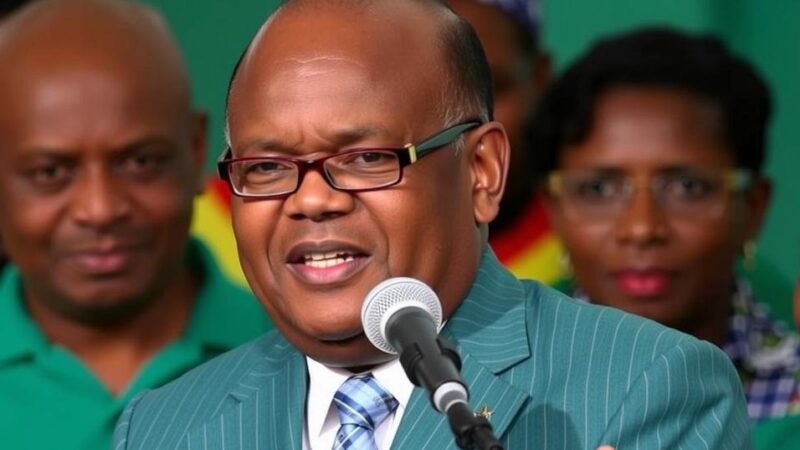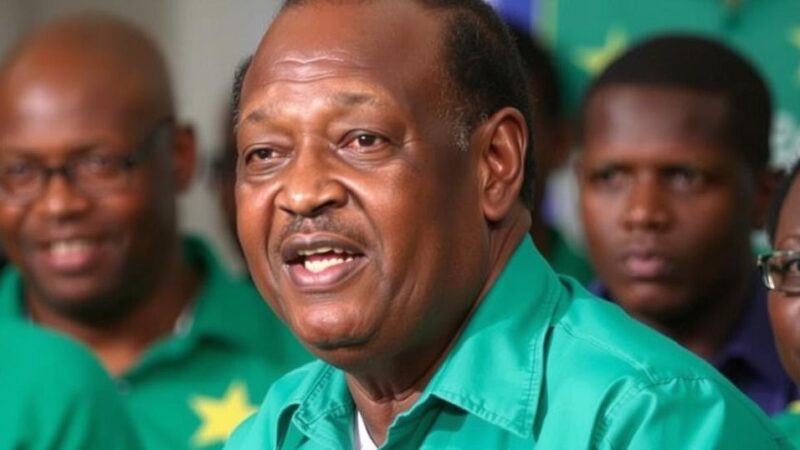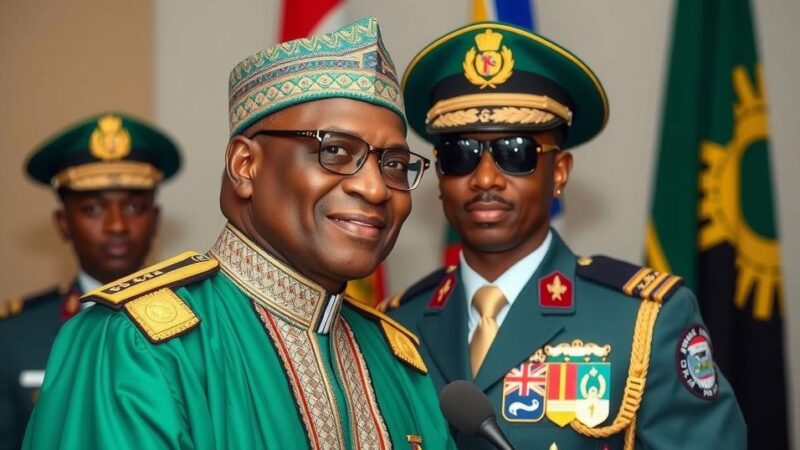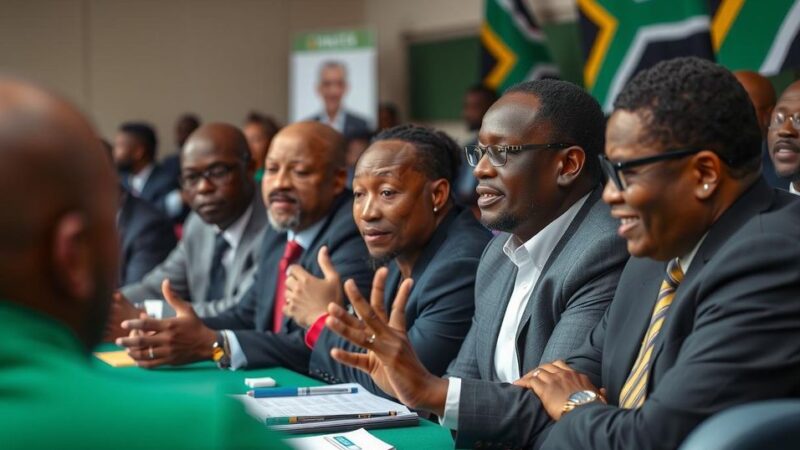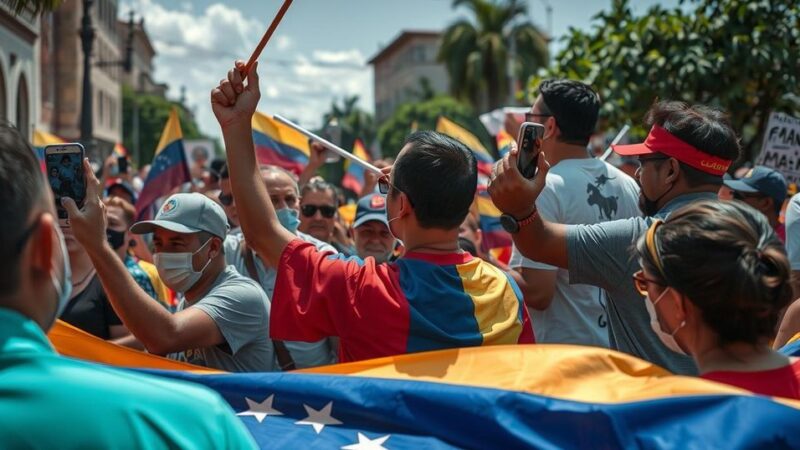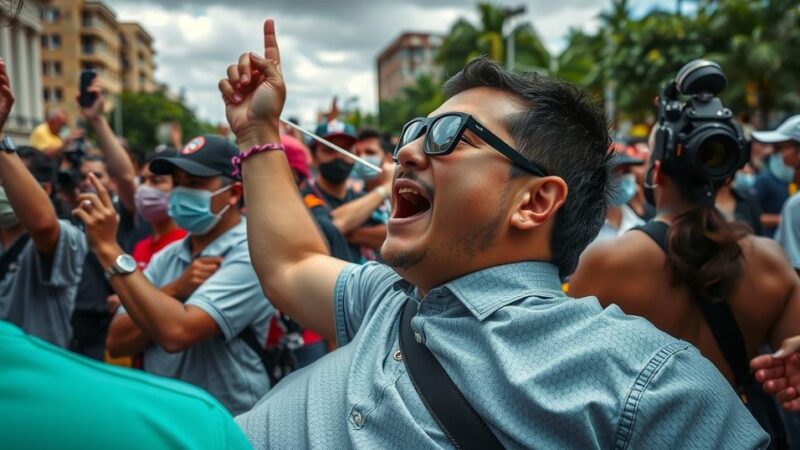A number of Zanu PF supporters, including a former councillor, voted in Mozambique’s general elections, raising concerns about the election’s credibility. The support for the ruling Frelimo party, historically aligned with Zanu PF, indicates a complicated political relationship. Reports of electoral manipulation and interference have emerged, prompting critiques from opposition figures about Zanu PF’s impact on regional stability.
A notable number of supporters from Zimbabwe’s ruling Zanu PF party, including a former councillor, participated in Mozambique’s general elections recently held on Saturday. This involvement has raised concerns regarding the legitimacy of the electoral process, especially as preliminary reports suggest that the results favor candidate Daniel Chapo of the ruling Frelimo party. Frelimo, which played a pivotal role during Mozambique’s liberation, shares a historical alliance with Zanu PF, including the provision of base support during Zimbabwe’s own struggle for independence. Described activities included hundreds of voters from Zimbabwe’s provinces of Masvingo, Chegutu, Mutare, and Harare, who allegedly cast their votes amid claims of widespread electoral fraud. One voter, Spiwe Maparanyanga, articulated a pragmatic motivation: “We have just voted in the Mozambique elections so that we might also cross the border safely when we want to go and buy goods for resale. We also like Frelimo, which we voted for.” This sentiment underscores the intertwined socio-economic interests of cross-border trading between the two countries. The voting process reportedly involved the distribution of authentic Mozambican identification documents to young individuals and the elderly, directing them to vote for Chapo. Despite the results being pending, Chapo is anticipated to face significant competition from Venancio Mondlane, a former RENAMO member, who enjoys the support of a significant youth constituency. Former Zanu PF councillor Edison Manyawi openly acknowledged his vote for Frelimo on camera, a move considered illegal under Zimbabwean law, stating, “We are happy with what we did because Mozambique is our neighbour and helped us during the liberation struggle, so we would not hesitate to help them win the elections.” Opposition figure Job Sikhala labeled Zanu PF’s involvement in regional elections as increasingly problematic, claiming they pose threats to stability across SADC nations. He has raised alarms regarding the party’s alleged manipulative involvement in the electoral processes of countries like Botswana and Zambia, particularly alluding to their support for the controversial former president Edgar Lungu, whose former rule was marred by scandals. This development has significant implications for relations among Southern African countries, particularly given the recent adverse report on Zimbabwe’s elections by Hakainde Hichilema, the current president of Zambia, which has reportedly strained diplomatic ties with Zimbabwean leadership.
The political connection between Zanu PF and Frelimo stems from shared historical interests and past military cooperation during their respective liberation struggles. As the current governing party in Mozambique, Frelimo’s political position is reinforced by loyalty from allies like Zanu PF, indicating a symbiotic relationship influenced by a shared ideological foundation and regional security cooperation. Moreover, the presence of Zanu PF supporters voting in Mozambique’s elections raises questions regarding electoral integrity not only in Mozambique but also about the broader implications for democratic practices within the Southern African Development Community (SADC). Recent tensions have emerged as regional powers grapple with perceptions of interference and the legitimacy of election outcomes.
The reported voting of Zanu PF supporters in Mozambique’s general elections underscores complex inter-party relations and issues of electoral integrity in Southern Africa. Allegations of electoral fraud and foreign influence pose serious questions about the legitimacy of the electoral process in Mozambique. Furthermore, the actions of influential Zanu PF members, as noted by Job Sikhala, highlight a regional political climate fraught with tension and mutual suspicion. As regional dynamics evolve, the implications of such actions could affect diplomatic relationships and the stability of democratic institutions across the SADC region.
Original Source: www.newzimbabwe.com

